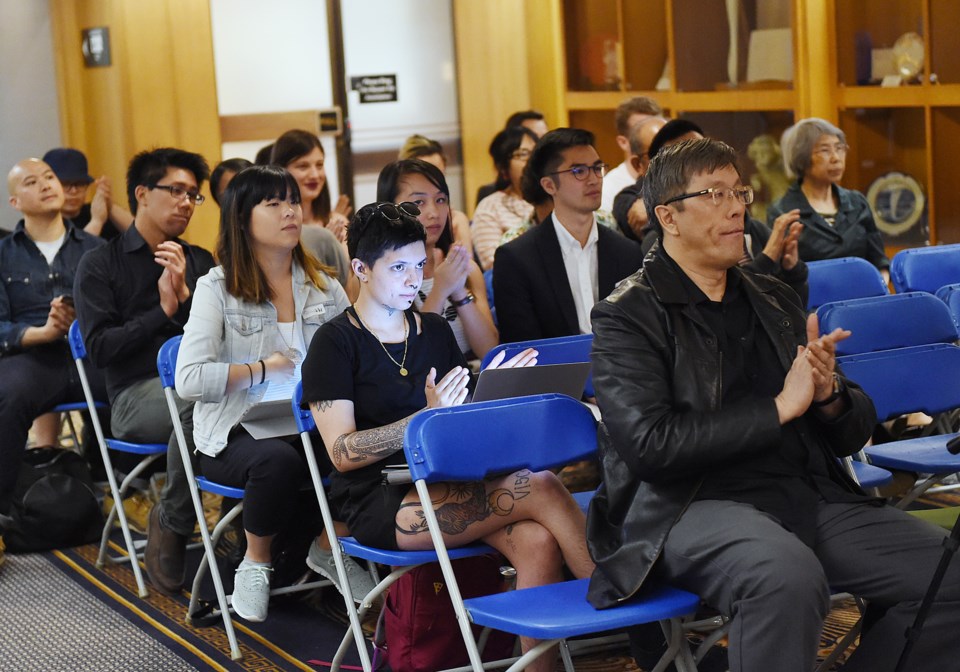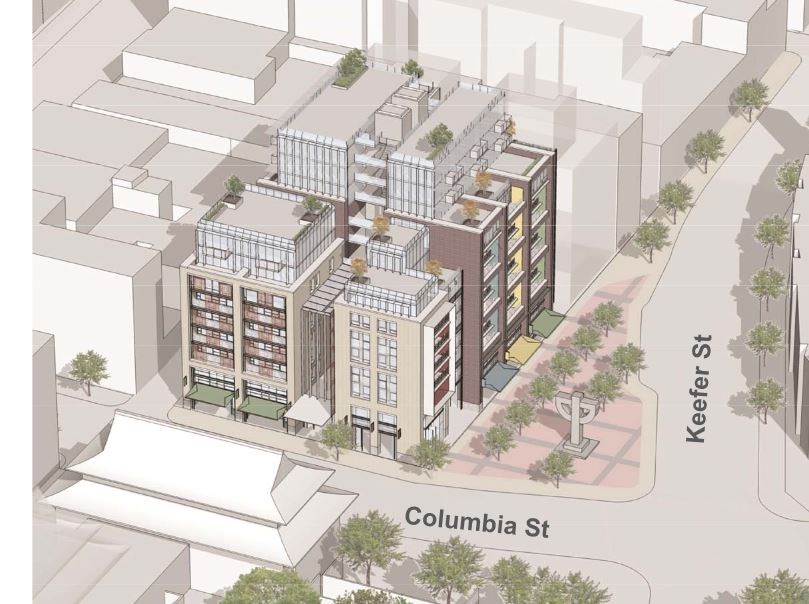In advance of city council's June 13 vote on whether to approve the rezoning of a 12-storey condo for Chinatown, I spent part of my weekend reviewing video of the four public hearing sessions.
As I mentioned in , I sat through a portion of the last session but wanted to hear more about what people were saying about the proposal.
Initial observation: It was refreshing to see so many articulate and passionate young people argue their points in front of an audience of politicians and city staff.
Many times, we just hear from the usual suspects.
The turnout of the 20 and 30-somethings made me think of what the late Roy Mah told me in 2002 when he spoke about the need to revitalize Chinatown and who he believed should lead the renewal.
The former newspaperman and military veteran predicted in 2002 that it would be the younger generation that would not let a community built by their families crumble.
"They're idea people, they're dynamic," he said. "If nothing else, they at least have the initiative to do something about the problems, and that's a good sign."
Though there were plenty of young folk in council chambers over the four hearings, the older generation showed up, too. Some spoke through a translator in Cantonese and Mandarin, which added another healthy dimension to the public exercise.

Musqueam elder Larry Grant also took a turn at the microphone and talked about the Chinese side of his family. Even the condo king, Bob Rennie, who owns a building on East Pender, made an appearance.
In the end, the council minutes indicate 46 people spoke in favour of the Beedie Development Group's proposal to build 106 strata residential apartments and 25 homes for seniors (paid for by B.C. Housing) at Keefer and Columbia streets. The project also calls for cultural and recreational activity space and retail at ground level.
The building, they said, would open up more housing for Chinatown, create new homes for seniors, add more community use space, add more shops and generate more business in the neighbourhood.
Of the 150 opposed to project, they were concerned about the building's height (118 feet) and bulky size, the shadows it would create, the lack of affordable housing and insufficient numbers of apartments for seniors.
Overall, they said, it was an inappropriate development for the neighbourhood, noting the property, which is currently a parking lot, faces the Dr. Sun Yat-Sen Garden and Chinese Cultural Centre and borders the Chinatown Memorial Square.
Both sides inundated council with emails and documents, with the "yes" side submitting 151 pieces of correspondence and three petitions with 1,693 signatures. The "no" side submitted 542 pieces of correspondence and two petitions with 3,092 signatures.
That's a lot of reading for council, after doing a lot of listening over four long days of hearings. Add to that the complex set of policies and guidelines for Chinatown — I believe it totals 16 — to be considered and you can be sure council will certainly earn its keep on this file.
Policy shift coming
To further complicate what council will decide June 13, a progress report on development policy changes for Chinatown surfaced recently on the city’s website.
I’ve been told the recommendations in the report are related to an upcoming policy shift to be considered by council in July. So, to be clear, the recommendations will not be incorporated into council’s decision on Beedie’s proposal.
Legally, it can’t happen.
But the recommendations are worth mentioning, particularly the one about scrapping the rezoning policy for Chinatown South (same area as Beedie project) and capping the height of new developments at 90 feet.
Other recommendations suggest new buildings should be smaller and built on narrow lots with smaller storefronts, keeping with the character of Chinatown.
And this one: Involve the community more in the review of new developments.
It should be noted Beedie revised the proposal three times since it was submitted in 2014, a process former city planner Nathan Edelson — whose responsibility included Chinatown — described in campy horror film terms.
"So much energy has had to be put into both sides, it has become like 'The Night of the Beedie Living Dead,' coming back time after time in a way that feels abusive of the community's resilience and the work of staff," he told council on the second day of hearings.
Land swap
He suggested, as many others did, that council work out a land swap and allow Beedie's proposal to be built on land that will be vacant once the Georgia and Dunsmuir viaducts are demolished.
In suggesting the swap, Edelson noted the energy and passion of the young people concerned about the present and future of Chinatown.
"You can give them a boost by really going to the Beedies and saying, 'You've made many contributions to this city, you've been a good development family. Let's find a culturally appropriate site for you and help the community on this site and realize it's real future.'"
No sooner did Edelson suggest the swap, that Coun. Andrea Reimer reminded him of the reality of what was before council: "If it were a decision between 118 feet and a land swap, it seems very appealing to go for the land swap. The challenge for us is there is no land swap on the table."
Reimer noted land under the viaducts is also valuable to the black community, which had property expropriated to build the viaducts. Edelson agreed and noted many Chinese property owners also lost land to the construction of the viaducts.
"There's a need for reconciliation with both communities," he said.
Reconciliation, history, culture, character, revitalization, housing, affordability, design — all of it seems to be on the table when council reconvenes June 13, no matter what policy shifts are coming.
Thousands of people, young and old, have made that clear.
@Howellings



